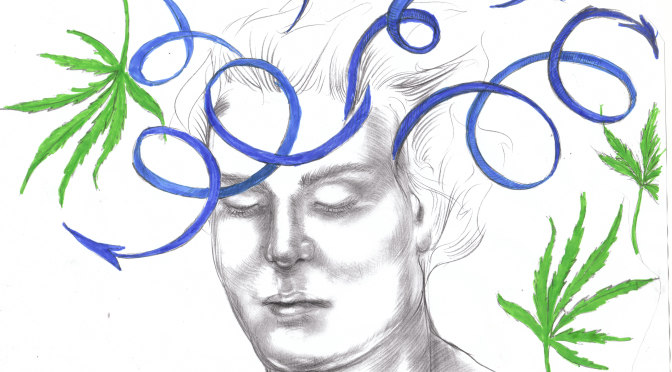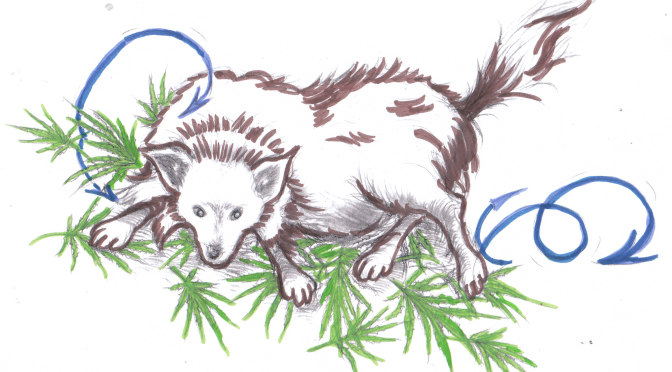(Read Part 1 and Part 2. Permission required for reprinting) After Ryan’s death, I remembered reading many years ago in a magazine about Margaret Trudeau, then wife of the Canadian Prime Minister Pierre Trudeau. She was in her 20s, partied with socialites, and also suffered psychotic breaks. Each time she referenced her use of marijuana as the trigger for those episodes. I’ve since read current articles, and she continues to share. For her, marijuana led her into “madness.” It was much later that she was diagnosed with bipolar disorder. It’s hard for me to accept her son, Justin Trudeau, wanting to have the same position his father held. He’s a proponent of pot, despite knowing his mother’s mental health was so affected by marijuana. It speaks volumes on how great the opposition to promoting the truth about this drug!
Ryan was not helped to understand why his brain lost touch with reality under the influence of THC–this is the “elephant in the room.” The fact that hospitals don’t consider marijuana a factor in the picture of mental health is a tragedy. We need every researcher, past and present, across the globe, who understands the truth about what pot does to young brains to stand up in solidarity.
The experience of Great Britain was that it decriminalized marijuana, saw a spike in mental illness as a result of loosening the law, and then tightened their laws again. Canada has website on the cannabis-psychosis-schizophrenia link. The US, on the other hand, is not noticing its problem, or influenced by the marijuana financiers, is refusing to see that so many young people who are addicted to it are also having psychiatric problems. I believe the psychiatry community has failed to connect the dots, ignoring the facts of today’s cannabis – so much stronger than when they were in school, or even 10 years ago.
The Lancet Journal of Psychiatry’s recent article points to a sevenfold risk of suicide for teens who use marijuana.
The second break happened 18 months after the first one, but this time I pre-arranged for Ryan to receive drug rehabilitation at a different hospital. The hospital in Pasadena gave the ‘green light’ for rehab. We paid $12,500 up front and Ryan’s PPO would insure the rest. His uncle and grandfather came, too, for support. Less than 24 hours after admittance, the staff coerced Ryan to their locked unit, where he was warehoused for 13 days with anti-psychotics exceeding the FDA limits.
The staff asked us several times: “Could Ryan have dropped acid? He doesn’t seem like our bipolar patients.” Once again his toxicology report came up positive (+) for THC. Again, in 2011, just like 2009, no one believed marijuana could cause this effect.
By now, we realized that our son’s drug problem was with weed and that he had relapsed with weed, but he never got a shot at the drug rehab for which we had already paid.
Ryan was “dumped” from their unit on the 13th day. The insurance refused to pay for it, perhaps after reading the notes of how much worse Ryan had become inside the hospital unit. Why are insurance companies allowed to have so much influence on a patient’s treatment when they don’t have expertise? He was drugged mercilessly into just a state of stupor. It was an endless nightmare for our son and for his family.
Ryan was taken off the last anti-psychotic at the first follow-up visit with the same psychiatrist because he appeared normal, compared to his state during hospitalization. However, he was still actively psychotic at that one week follow up. (I had stopped Haldol when he came home, as I was horrified my son had been receiving Haldol round-the-clock. Of course, at 6’4”, Ryan was intimidating. He had never become violent, but he tried to escape several times, realizing he had been tricked from the open unit into the locked unit.)
Coming Home Again
Ryan was hit with a personal betrayal at the same time–which just leveled him. Yet, with love and support of our family, he emerged once again from psychosis 10 weeks later. It came within the same time frame as the first episode, probably not a coincidence. This time it happened without medications, and I am suspicious that the medicines didn’t really affect his state of mind coming off psychosis after the first episode.
Ryan stayed with the Ivy League psychiatrist after coming out of psychosis for several visits. He drove all the way to his office in Pasadena, then had to wait up to 1 1/2 hours, as he piled in patients for the 15-minute check-in. I always hoped Ryan would invite me to go with him, but he didn’t. On the last visit, Ryan came home and announced “Mom, I’m not going back to see him because he never takes his head out of the computer, and doesn’t even look at me.”
After my son died, I subpoenaed his records only to find many days of nursing notes documenting: “Please call my mom she’ll know how to help me.” “I can’t stay in here like the last time, you don’t know what happened to me there.” But no one called me or told me despite my calling twice a day and visits every night.
During the 2nd hospitalization, I believe the massive anti-psychotics administered threw him into full-blown psychosis, as compared to the mild state of psychosis at the time he entered to get drug rehab. Drugging a young person into such a state of stupor, and then stopping medication upon discharge, surely that plays havoc on the young brain – already under siege from the effects of THC.
There are families whose kids died from drug overdoses, but began their drug usage with pot. There are those who have children hopelessly addicted to marijuana and there are those of us whose children die from the consequences of marijuana usage. All of us are stymied by a cover-up of the marijuana-mental illness link, and the fact that mental health treatment doesn’t adequately connect with substance abuse and addiction treatment. Follow our posts by email to receive part 4 and part 5, to be published in December.


